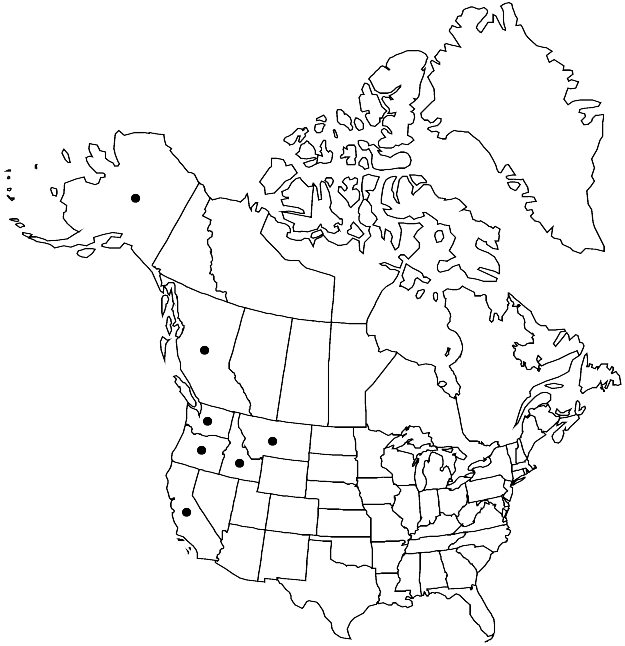Plagiomnium venustum
Ann. Bot. Fenn. 5: 146. 1968.
Erect stems 2–4 (–6) cm, not dendroid; sterile stems absent. Leaves green or yellow-green, crisped and contorted, distally often densely twisted around stem when dry, flat when moist, obovate or elliptic, 3–5 (–7) mm; base decurrent or not; margins toothed to 2/3 leaf length or sometimes just past mid leaf or to base, teeth sharp, of 1–2 (–3) cells; apex acute, acuminate, or rarely obtuse or rounded, cuspidate, cusp toothed; costa percurrent, excurrent, or rarely subpercurrent; medial laminal cells short-elongate or ± isodiametric, (17–) 25–40 (–45) µm, slightly smaller near margins, in longitudinal, rarely diagonal rows, strongly collenchymatous, walls not pitted; marginal cells linear, in (3–) 4–5 rows. Sexual condition synoicous. Seta 1–4 (–6), yellow, reddish at base, 3–4 cm. Capsule horizontal to pendent, oblong, 3–4.5 mm, neck distinct, brown, often wrinkled; operculum conic-apiculate. Spores 34–40 µm.
Phenology: Capsules mature late spring–early summer.
Habitat: Humus, soil, sand, logs, stumps, tree bases, rock, concrete, well-drained sites, forests
Elevation: low to moderate elevations
Distribution

B.C., Alaska, Calif., Idaho, Mont., Oreg., Wash.
Discussion
Plagiomnium venustum is the only species of the genus that lacks sterile stems. It is a common western species that forms large, handsome mats or turfs in many northwest coastal forests, especially noticeable on tree bases. Sporophytes are common. Another distinctive feature of P. venustum is the presence of dark and mammillose stomatal guard cells in the necks of the capsules.
Selected References
None.
Lower Taxa
"sharp" is not a number.